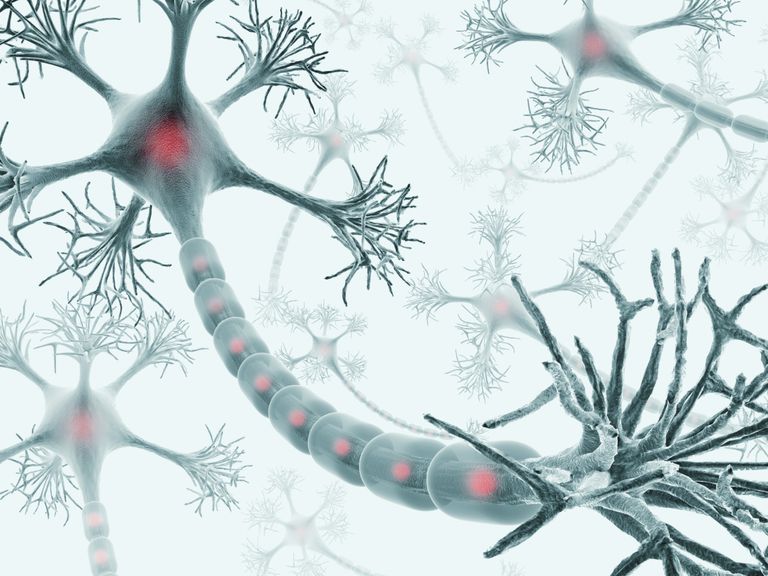This post was originally published on this site
A recent Phase 1 clinical study of a potential Alzheimer’s therapy showed positive results regarding both safety and biomarkers for cognitive processes.
The data support advancing the investigational compound, NDX-1017, developed by Athira Pharma, to later-stage clinical trials.
The results, “Phase 1 Study of NDX-1017: Safety, Pharmacokinetics and Pharmacodynamics in Healthy Volunteers and Dementia Patients,” were presented recently at the 12th Annual Clinical Trials on Alzheimer’s Disease (CTAD) Conference in San Diego, California.
Alzheimer’s disease is a progressive brain disorder that destroys a person’s memory and other thinking skills. Within the brain, neurons exchange information by releasing chemicals called neurotransmitters at synapses, or junctions between neurons. Similar to passing through an area of poor cell coverage, Alzheimer’s disease disrupts this process, preventing neurons from communicating with each other.
Alzheimer’s is currently irreversible and incurable. Although some medications can alleviate symptoms by improving cell-to-cell communication within the brain, none have a prolonged effect. That’s why new and improved treatments are constantly sought.
The Phase 1 study (NCT03298672) evaluated the safety, tolerability and pharmacokinetics (how the body affects and processes a medicine) of NDX-1017.
The study measured quantitative electroencephalography (qEEG) as a biomarker for brain function. It also measured event-related potential (ERP) to assess working memory access and cognitive processes. Both measurements are noninvasive and indicate that NDX-1017 crosses the blood-brain barrier (BBB), a semipermeable membrane that protects the brain from the outside environment and is an important factor when treating cognitive disorders.
Athira designed NDX-1017 to enhance the activity of Hepatocyte Growth Factor (HGF) and its receptor, MET. HGF originally was isolated in the liver and has since been found to be important in healthy synaptic activity. Similar to roots seeking water, neurons branch out in search of new connections with other neurons. HGF and MET play a key role in this process, called dendritic arborization.
Athira contends that NDX-1017 has the potential to regenerate brain damage caused by Alzheimer’s. By restoring HGF-MET activity, Athira hopes to slow, halt, or even reverse the disease.
The Phase 1 trial was a placebo-controlled study that tested single and multiple ascending doses of NDX-1017 among 88 healthy young people (age 18–45 years) and elderly individuals (age 60–85) , as well as elderly participants with amnestic mild cognitive impairment (MCI) or Alzheimer’s disease.
To establish best dosage protocols, researchers split the trial into two parts. In Part A, 48 participants all received a single intravenous (injected into the vein) dose of NDX-1017. The dosage was increased over the course of three days (2 to 90 mg) to determine the maximum tolerated dose. This type of dosing protocol is called a single ascending dose (SAD). All results were compared to placebo. Part A included both healthy young male and healthy elderly male and female volunteers.
Participants in Part B received multiple ascending doses (MAD). This means their doses and dose intervals (the time between doses) were calculated from Part A results. Part B occurred over nine days and patients received daily treatment at doses between 20 and 60 mg. Participants included both healthy elderly subjects and patients with amnestic mild cognitive impairment (mental difficulties including memory impairment), mild-to-moderate Alzheimer’s disease, or mixed dementia with Alzheimer’s and mild-to-moderate vascular components.
MAD testing is used to determine the dose that keeps the medicine circulating in a person’s body at therapeutic levels for several days.
Single and multiple-doses of NDX-1017 were safe and well-tolerated in healthy young and elderly volunteers. The compound was able to penetrate the BBB and enter the central nervous system (the brain and spinal cord) and was absorbed well with no accumulation after multiple doses.
NDX-1017 had dose-dependent and consistent changes in brain activity across all treated groups, enhancing brain circuitry and normalizing brain activity in patients with mild-to-moderate Alzheimer’s disease.
“These data support the advancement of NDX-1017 into a later-stage clinical trial in individuals impacted by Alzheimer’s disease,” Hans J. Moebius, MD, PhD, Athira’s chief medical officer, said in a press release.
The post Phase 1 Trial for Potential Alzheimer’s Therapy Yields Positive Results appeared first on Alzheimer’s News Today.
The post Phase 1 Trial for Potential Alzheimer’s Therapy Yields Positive Results appeared first on BioNewsFeeds.


